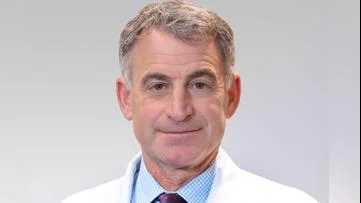
Pamela King, a 73-year-old resident of suburban Chicago, turned to Northwestern Medicine for help after noticing significant hearing difficulties that persisted despite using bilateral hearing aids. Her experience reflects a growing trend among older adults who are seeking cochlear implants as they learn more about the connection between hearing loss and cognitive decline.
King first became acutely aware of her hearing challenges during a family visit in the fall of 2024. “My nephews visited in the fall of 2024 and that’s when I became profoundly aware of my hearing loss. It was so exciting to visit with them and their families, but I had to so strain to hear them, to understand them, and it was quite depleting,” she said.
Following her annual hearing test at Northwestern Medicine in December 2024, King's suspicions were confirmed. “As I anticipated based on my experience with family and other interactions, my hearing test results reflected a hearing decline. The physician assistant recommended that I consider a cochlear implant consultation,” King said. “At that time, I was unfamiliar with cochlear implant surgery.”
A cochlear implant is an electronic device implanted surgically to help individuals with severe or profound hearing loss perceive sounds. Krystine Mullins, AuD, an audiologist at Northwestern Medicine Central DuPage Hospital, explained: “The way the implant works is we're putting electrodes in your inner ear to replace the hearing cells that are missing. Where hearing aid makes things louder, a cochlear implant makes things a little bit more clearer sounding.”
Candidates for cochlear implants typically have moderate to profound hearing loss in at least one ear and do not benefit from conventional hearing aids. Dr. Mullins emphasized that age is not necessarily a barrier: “We first want to make sure that hearing aids don't work for you, then the next step would be a cochlear implant,” she said. “In our practice, we see anywhere from about 15, 16-year-olds to 100 years old. As long as you're healthy enough to go through a surgery, you’re a candidate for a cochlear implant.”
While considering the procedure, King discussed her options with Kuljeet Gill, MD—a pulmonologist specializing in sleep medicine at Northwestern Medicine—during an unrelated appointment. Dr. Gill supported King's decision: “I am very excited when my patients want to address their profound hearing loss through hearing aids or cochlear implants because there’s a correlation, according to studies, that a hearing deficit can translate into a faster rate of cognitive decline,” Dr. Gill said.
Recent research has suggested that treating significant hearing loss may help reduce dementia risk among vulnerable groups.
Dr. Mullins noted growing patient awareness around this issue: “It is a big concern for a lot of people. A lot of people are coming in with those concerns to help optimize their hearing and help slow down the progression of dementia or cognitive decline,” she said.
In April 2025, Richard M. Wiet, MD performed King's outpatient cochlear implant surgery at Northwestern Medicine Delnor Hospital; she returned home the same day without complications.
“My printed ‘After Visit’ summary detailed what my activity and exercise restrictions were, pain medications, when I could wash my hair, when I could bathe, etc. It was very, very detailed, and it addressed everything that I needed,” King said. “Other than taking some Tylenol, I didn't take any of the pain meds and I've done very well.”
Three weeks later during her follow-up appointment with Dr. Mullins for activation of the device—which turns on the implanted electronics—King described her emotional response: “A lot of times you don't realize what you're missing. I'm hearing sounds I haven't heard in probably years, and it's pretty remarkable,’ said King. “Hearing deficit touches really every aspect of your life, and this is going to make a significant difference. I'm really excited about it.”
Northwestern Medicine provides comprehensive services for patients experiencing various degrees of hearing loss—including testing evaluations as well as consultations and procedures related to both traditional aids and implants—and offers additional information on candidacy requirements on its website (https://www.nm.org).